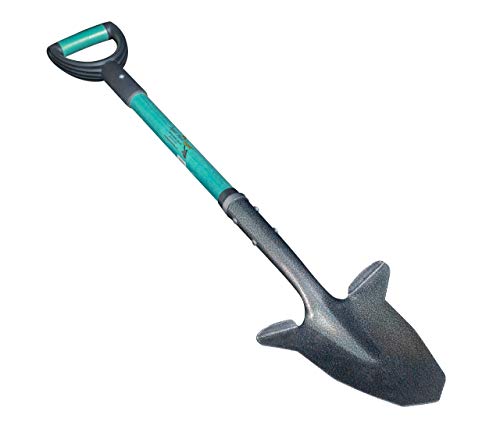




During the winter months, a blanket of snow covers the streets, sidewalks, and driveways. While it may seem like a tedious task, clearing your sidewalk of snow and ice is actually a legal responsibility in many countries. Neglecting to do so can result in fines and even legal consequences.
In some jurisdictions, there are specific laws that require property owners to remove snow and ice from their sidewalks within a certain timeframe after a snowfall. These laws are in place to ensure the safety and accessibility of public spaces, as well as to prevent slip and fall accidents.
If a property owner fails to clear their sidewalk and someone gets injured as a result, the owner may be held liable for any damages. This means that if someone slips and falls on an icy sidewalk in front of your property, you could be sued for their medical expenses, lost wages, and other damages.
Although the specific laws regarding sidewalk shoveling vary depending on the jurisdiction, it is generally considered a civic duty for property owners to keep their sidewalks clear. It not only helps prevent accidents but also allows pedestrians, including those with disabilities, to safely navigate the streets. So, while shoveling snow may be a hassle, it is ultimately an important part of being a responsible citizen and contributing to the well-being of the community.
Understanding the Legal Obligations for Sidewalk Shoveling
Living in a region with cold winters often means dealing with snow-covered sidewalks. While it may seem like a simple chore, it is important to understand the legal obligations that come with sidewalk shoveling.
Local Laws
Each local jurisdiction may have specific laws and regulations regarding sidewalk shoveling. It is crucial to familiarize yourself with these laws to ensure compliance and avoid any legal consequences. Typically, these laws outline the timeframe within which sidewalks must be cleared, the width of the cleared path, and the consequences for not clearing the snow.
Pedestrian Safety
The main reason for these legal obligations is to ensure pedestrian safety. Snow and ice on sidewalks can create hazardous conditions, making it difficult for pedestrians to walk safely. By shoveling your sidewalk, you are preventing potential accidents and injuries.
In some areas, failing to shovel your sidewalk may result in fines or penalties if someone gets injured due to your negligence. These laws hold property owners responsible for maintaining safe walkways for pedestrians.
Additionally, some local jurisdictions may require property owners to use certain materials, such as salt or sand, to prevent the formation of ice on the cleared sidewalk. This helps further ensure the safety of pedestrians.
It is worth noting that some local laws may exempt certain individuals, such as the elderly or physically disabled, from sidewalk shoveling obligations. However, it is vital to check the specific exemptions and requirements in your area.
To summarize, it is essential to understand and comply with the legal obligations for sidewalk shoveling in your local jurisdiction. By doing so, you contribute to the safety of pedestrians and avoid any potential legal consequences.
Importance of Shoveling Sidewalks
Shoveling sidewalks is not only a responsible community practice but also an essential safety measure. Clearing snow and ice from sidewalks helps prevent accidents and promotes the well-being of pedestrians.
1. Safety
Shoveling sidewalks ensures the safety of people walking in the neighborhood. When sidewalks are left uncleared, they become hazardous, especially when the snow or ice becomes compacted and turns into ice patches. This can result in slips, falls, and serious injuries. By regularly shoveling sidewalks, we can reduce the risk of accidents and contribute to a safer environment.
2. Accessibility
Shoveling sidewalks is important for maintaining accessibility for everyone, including individuals with mobility impairments, parents with strollers, and the elderly. When sidewalks are covered with snow and ice, it becomes difficult or impossible for these individuals to travel safely, limiting their freedom and independence. By shoveling our sidewalks, we ensure that our community remains inclusive and accessible to all.
In conclusion, shoveling sidewalks is not just a legal requirement in many areas, but it is also a crucial responsibility we should all undertake. By keeping our sidewalks clear of snow and ice, we create a safer and more accessible community for everyone.
Local Laws and Regulations
When it comes to shoveling your sidewalk, it is important to be aware of the local laws and regulations that govern this responsibility. Each jurisdiction may have its own specific requirements and penalties for failing to clear snow and ice from your sidewalk in a timely manner.
City and municipal codes:
Many cities and municipalities have ordinances in place that require property owners to remove snow and ice from their sidewalks within a certain timeframe. The timeframe may vary depending on the jurisdiction, but it is typically within 24 to 48 hours after the snowfall has ended.
Penalties and fines:
Failure to comply with these local laws and regulations can result in penalties and fines. The specific penalties can vary depending on the jurisdiction but may include fines ranging from a few hundred dollars to several thousand dollars. Repeat offenders may face higher fines and even legal action.
Liability:
Aside from potential fines, failure to shovel your sidewalk can also expose you to liability if someone slips and falls on your property due to icy conditions. In some jurisdictions, property owners may be held responsible for injuries and damages caused by their failure to maintain their sidewalks in a safe condition.
Exceptions and exemptions:
Some jurisdictions may have exceptions or exemptions for certain individuals, such as elderly or disabled persons, who may have difficulty shoveling their own sidewalks. It is important to be familiar with the local laws and regulations that apply to your specific situation.
Stay informed and proactive
It is always a good idea to stay informed about the local laws and regulations regarding sidewalk shoveling in your area. Check with your local government or municipality for specific guidelines and requirements. Taking proactive measures to clear your sidewalk promptly can help ensure the safety of pedestrians and prevent potential legal issues.
Consult legal advice
If you have questions or concerns about the local laws and regulations regarding sidewalk shoveling, it is recommended to consult with a legal professional who specializes in local ordinances. They can provide you with accurate information and guidance to ensure you are meeting your obligations as a property owner.
Potential Legal Consequences
Not shoveling your sidewalk in certain jurisdictions can result in potential legal consequences. While the specific penalties may vary depending on local laws, here are some common legal consequences you may face:
Fines
In many places, failing to shovel your sidewalk can result in fines. These fines can range from a few hundred dollars to several thousand dollars depending on the severity of the offense and any prior violations. It’s important to consult your local ordinances to understand the specific fines you could be subject to.
Lawsuits
If someone slips and falls on your uncleared sidewalk, you may be held liable for their injuries. Injured individuals can file personal injury lawsuits seeking compensation for medical expenses, lost wages, pain and suffering, and other damages. The outcome of such lawsuits will depend on various factors, including the specific circumstances of the incident and the applicable laws in your jurisdiction.
It’s worth noting that some jurisdictions have laws or ordinances that make it explicitly the responsibility of the property owner to maintain a safe and clear sidewalk. This means that failing to do so can potentially result in lawsuits and financial liability.
Legal Obligations
Depending on your jurisdiction, there may be specific laws or ordinances that require property owners or occupants to clear their sidewalks. These laws are often put in place to ensure pedestrian safety and accessibility. Violating these laws can result in legal consequences, such as fines or being held liable for injuries.
Remember to always consult your local laws and ordinances to understand the specific legal obligations and potential consequences of not shoveling your sidewalk.
Exceptions and Exemptions
In certain situations, there may be exceptions or exemptions to the legal requirement of shoveling your sidewalk. These exceptions can vary depending on the specific laws and regulations of your local area. It is important to familiarize yourself with the rules applicable to your jurisdiction.
Health Conditions
Some individuals may have health conditions or disabilities that prevent them from shoveling their sidewalks. In such cases, they may be exempt from the obligation, but they may need to arrange for an alternative solution, such as hiring someone to clear the sidewalk on their behalf or contacting the local government for assistance.
Age
In certain jurisdictions, elderly individuals may be exempt from shoveling their sidewalks due to age-related concerns or physical limitations. Again, the specific criteria and requirements for this exemption can vary, so it is advisable to consult local regulations in order to determine the applicable rules.
Emergency Situations
In emergency situations, where snowfall is unusually heavy or when a state of emergency has been declared, the requirement to shovel sidewalks may be temporarily suspended. During such times, authorities may focus on clearing major roads and prioritizing public safety over individual responsibilities.
Please note that this information is provided as a general guideline and does not constitute legal advice. It is always recommended to consult with local authorities or legal professionals to ensure compliance with the specific laws and regulations applicable to your area.
Best Practices for Sidewalk Shoveling
Shoveling your sidewalk is not only a matter of courtesy, but it is also a legal requirement in many places. Failing to clear your sidewalk can result in fines and even legal action if someone gets injured as a result of your negligence. Here are some best practices to follow when shoveling your sidewalk:
1. Clear the snow as soon as possible
It is important to clear the snow from your sidewalk as soon as possible after a snowfall. This will prevent the snow from getting packed down and turning into ice, which can increase the risk of slips and falls. Ideally, you should start shoveling within 24 hours of the end of the snowfall.
2. Use the right tools
Invest in a good quality shovel that is suitable for the type of snow you typically get in your area. A shovel with a curved blade and a long handle can make the task easier and more efficient. Consider using an ice melt or sand to help melt ice and improve traction on the sidewalk.
3. Clear the entire sidewalk
When shoveling, make sure to clear the entire width of your sidewalk, not just a narrow path. This will help pedestrians safely navigate the area and prevent accidents. Take the time to remove any ice or packed-down snow to ensure a safe and clear path.
4. Watch your technique
When shoveling, use proper lifting techniques to avoid strain or injury. Bend at the knees and lift with your legs instead of your back. Take frequent breaks and avoid overexertion, especially if the snow is heavy or wet. If you have any health concerns or physical limitations, consider hiring a professional to shovel your sidewalk for you.
5. Be mindful of your neighbors
Remember that shoveling your sidewalk is not only for your own benefit but also for the safety of your neighbors and the community. Be considerate and help elderly or disabled neighbors who may have difficulty shoveling their own sidewalks. Clearing the snow and ice from your sidewalk is a responsibility we all share.
By following these best practices, you can help ensure the safety of yourself and others during the winter months. Remember, shoveling your sidewalk is a legal obligation and an important part of being a good neighbor. Stay safe and keep your sidewalks clear!






